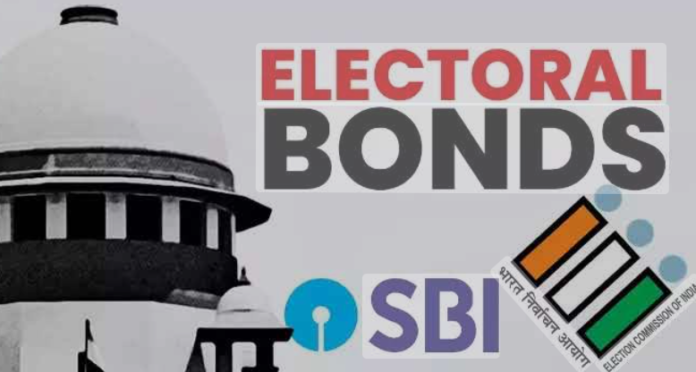Amit Pandey

In a landmark move to enhance transparency in political funding, the Supreme Court of India, led by Chief Justice D.Y. Chandrachud, has taken a firm stance against the State Bank of India’s (SBI) non-compliance with a crucial court order. The apex court’s directive was clear: SBI was to disclose details of electoral bonds to the Election Commission by March 15, 2024, a measure aimed at shedding light on anonymous political donations.
The electoral bond scheme, introduced as a means to fund political parties, has been shrouded in secrecy, with donors and recipients remaining anonymous. This lack of transparency has raised concerns about the influence of undisclosed financial contributions on the democratic process. Recognizing the potential implications on the electorate’s right to information, the Supreme Court deemed the scheme unconstitutional and ordered the immediate disclosure of all bond transactions.
Despite the court’s clear instructions, SBI sought an extension, citing the need for more time to collate and match details, a request that was promptly dismissed by the bench. The court’s rebuke was a reminder of the judiciary’s commitment to uphold the constitution and the citizens’ right to information. Chief Justice Chandrachud, known for his judicious and progressive outlook, emphasized the urgency of compliance, warning SBI of potential contempt proceedings in case of further delays.
The case against the State Bank of India (SBI) regarding electoral bonds was rooted in concerns over transparency and the right to information. The Supreme Court, led by Chief Justice D.Y. Chandrachud, had previously declared the electoral bond scheme unconstitutional, citing violations of citizens’ right to information. The scheme, introduced by the Union government in 2018, allowed for anonymous donations to political parties, raising questions about the influence of undisclosed funds on democratic processes.
The court’s decision mandated SBI to cease issuing electoral bonds and to disclose all details of the bonds encashed so far. Despite this, SBI failed to comply with the order, leading to the petitioner’s return to court. The Supreme Court’s dismissal of SBI’s appeal for an extension underscored the judiciary’s commitment to enforcing transparency in political funding. The bank was ordered to publish the information by a set deadline or face contempt proceedings. This case highlights the ongoing struggle to balance the need for political funding with the public’s right to know the sources of such funding.
The court’s order represents a pivotal moment in India’s ongoing battle for transparency in electoral financing. By compelling SBI to file an affidavit confirming the execution of the order and mandating the publication of bond details on the Election Commission’s website, the judiciary has sent a strong message about the importance of accountability in the country’s financial and political spheres.
As the deadline approaches, all eyes are on SBI and the Election Commission to follow through on the Supreme Court’s directive. The outcome of this compliance will not only reflect the institutions’ respect for the judiciary but also set a precedent for future governance and the sanctity of the electoral process.
The unfolding events serve as a testament to the judiciary’s role as the guardian of constitutional values and the public’s right to know. In a democracy, the flow of information is the lifeblood of informed decision-making, and the Supreme Court’s actions reinforce the principle that transparency is not just a virtue but a prerequisite for a healthy democratic society.
The Supreme Court’s intervention in the electoral bond issue is a significant step towards demystifying the financial mechanisms that drive political campaigns. It underscores the need for openness and accountability, ensuring that the electorate is fully informed about the sources of political funding. As India continues to navigate the complexities of its democratic processes, the judiciary’s role in safeguarding transparency remains crucial. The nation watches with bated breath as the SBI and the Election Commission work to meet the court’s expectations, a task that will undoubtedly shape the future of electoral integrity in India.
The court’s decision has brought to light the often overlooked actions and agendas of political parties, which claim to serve the public and their ideologies. It questions why these parties only now choose to disclose certain matters to the public, despite previously professing their philosophies and philanthropy to society. The ruling also casts doubt on the intentions of politicians, bureaucrats, and others who play a significant role in both governance and society. It signals a pivotal moment for these individuals to reflect on their behavior and its impact on sustaining a robust democracy.


